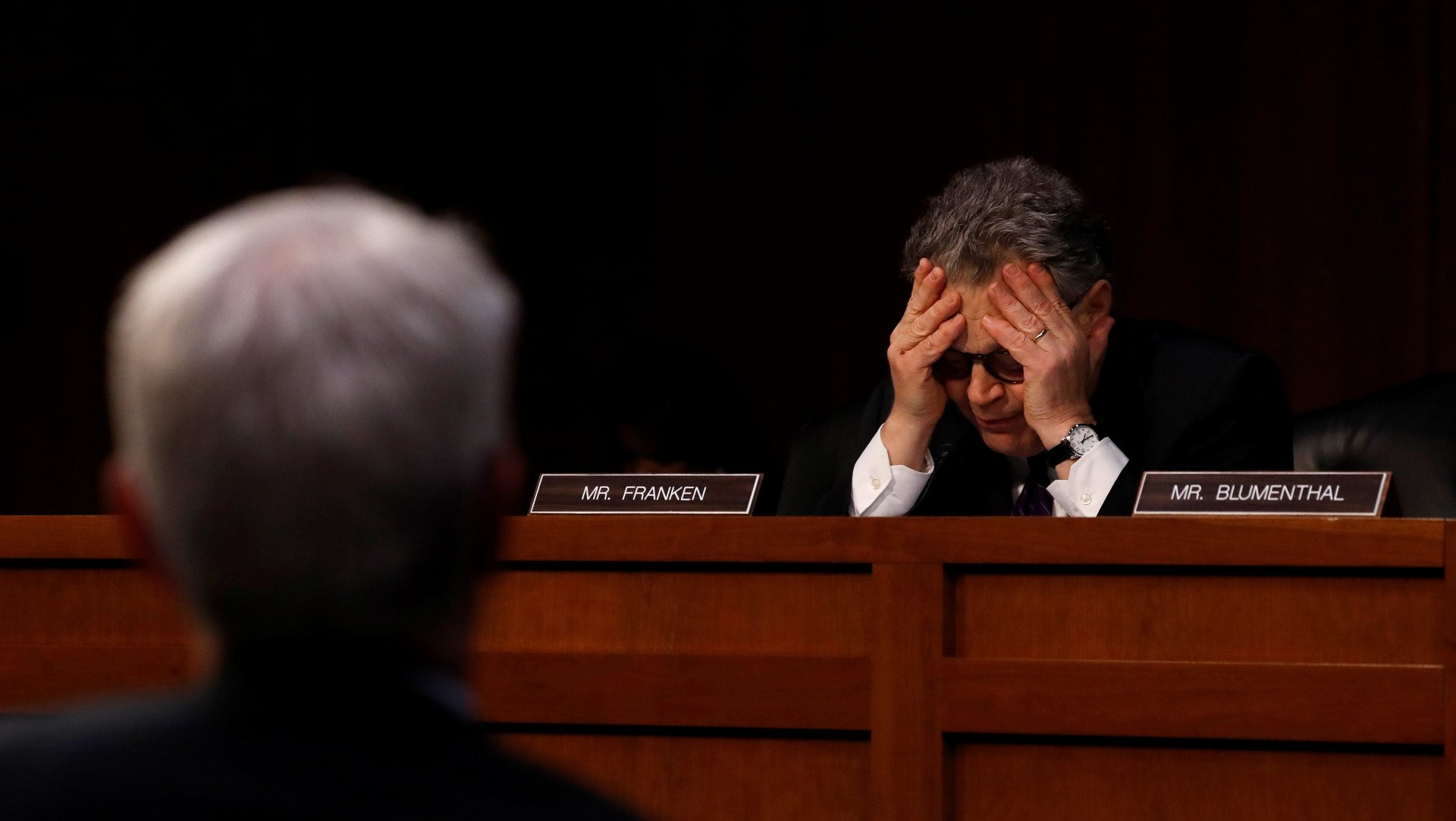Why Facebook CEO Mark Zuckerberg is not testifying before Congress
As Facebook begins its second day of testimony before Congress, we shouldn’t expect to see its most public faces, CEO Mark Zuckerberg and COO Sheryl Sandberg. Instead, lawmakers will be grilling tech company reps who are more used to confrontational questioning: their lawyers.


As Facebook begins its second day of testimony before Congress, we shouldn’t expect to see its most public faces, CEO Mark Zuckerberg and COO Sheryl Sandberg. Instead, lawmakers will be grilling tech company reps who are more used to confrontational questioning: their lawyers.
Although many have called for Zuckerberg to appear, there are several reasons why Facebook, as well as Twitter and Google, picked their counsel instead of their executives to face senators and representatives.
Lawmakers can ask some very tough questions. When Louisiana Senator John Kennedy yesterday, for instance, asked how Facebook could possibly know who their five million advertisers were, or whether advertisers were buying ads through shell companies, general counsel Colin Stretch was stumped.
Stretch was presumably well-prepared. He’s been with Facebook since 2010, has handled multiple high-profile cases for the company, and led the investigation into Russian meddling. Yet, as a lawyer for the company, Stretch may be able to better deal with congressional testimony because he deals daily with the issues at hand and might be better equipped to handle multiple political agendas, says Chuck McCullough, an attorney who specializes in congressional investigations and partner at the law firm Tully Rickney.
Lawyers are also more able to skirt issues that could be incriminating, McCullough says, in this case, anything that may be related to special counsel Robert Mueller’s investigation into Russian interference in the election. “Your job, as the lawyer, is to keep your principles from getting entangled in any way in the criminal litigation and criminal matters in any way, shape, or form,” he says.
Then there is the public relations aspect. With Zuckerberg or Sandberg testifying, it becomes a show of sorts. From the lawmakers perspective, “there is a diminution of the actual amount and quantity of technical information that can be provided,” said McCullough.
In an age of the Silicon Valley founder-emperor, an executive like Zuckerberg practically is the company, so Facebook may, of course, want to avoid making him look vulnerable. If Zuckerberg stumbled in any way during testimony, or had a quote taken out of context, McCullough says, that could reflect badly on the company, which already is under fire.
What about the flip side?
The tech companies’ decision to send their lawyers contrasts with 2001, when TV executives appeared before Congress to explain their coverage of the presidential election. TV executives hung their collective heads in remorse in front of lawmakers for calling the 2000 presidential too early. Tobacco executives similarly had to face the music during the 1990s.
Many would like to see Zuckerberg do the same, for reasons outlined here by The Intercept: Facebook’s need for transparency, and, above all, accountability.
“From a societal standpoint, and doubts that people may have about the company in terms of its patriotism, or any doubts people may have with respect to the company being part of the fabric of America, I think he could resolve them by going in and testifying. This would certainly show him in a different light,” McCullough says.